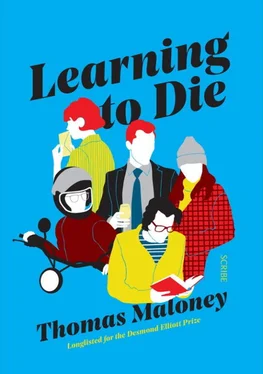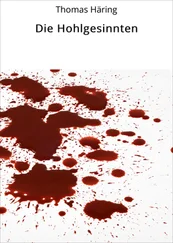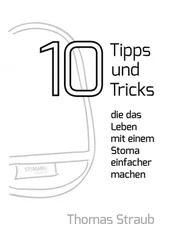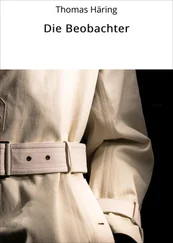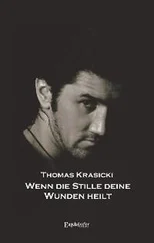Natalie wasn’t expecting this. It’s too much, too fast. Too direct, too suggestive. Too downright unfaithful. Or is it?
‘Um. That’s very kind of you. Let me just think a moment.’
Suddenly, Dan’s key scrapes in the lock. He’s home early.
‘I’ll think about it thanks again bye.’
Dan closes the front door, turns slowly and looks at her with a rather solemn, disappointed smile. He overheard and is going to confront her. No. Something else.
‘Hi. Dan? What is it?’
He puts his helmet down on the side table and lays his gloves on top. Eases off his heavy jacket.
‘I’ve just come from the hospital,’ he says calmly, his back to her as he hangs up the jacket. ‘My results came.’
Something isn’t quite right, so Natalie says nothing. Waits. The boots come off. Slim under all that armour. He pads over to her in his socks, still with the calm, solemn smile. The usual kiss.
‘It’s bad news.’ Natalie’s heart lurches. He was right, she was wrong. Doubly wrong. A needle of shame.
‘Oh, love. What is it? What did they say?’ She reaches a hand up to his face. His eyes are bloodshot. The shame is forgotten.
‘I’m sorry,’ he whispers, no longer calm, no longer himself. ‘You don’t deserve this.’
‘Me? What do you mean?’ He stares down at her. ‘Dan?’ At last the words come choking out of him.
‘Everything’s going to be completely fucked.’
‘We sweat, we tremble, we turn pale, we flush, beneath our imagination’s impact.’
Montaigne
Brenda surveys her bedroom. James says he’s coming to visit — he’s going to hire a car for the weekend. Four hundred miles, just to see her.
The main thing wrong with her bedroom, she decides, is that there are too many sticks in it. Brenda collects forked sticks — Y for Yggdrasil, the world tree. Or V for Vickers. Fir cones, too, and bark. She makes a large artistic arrangement in the corner of the main downstairs room, obscuring the stolen race flags, then rejumbles her clothes until all the drawers close; drags her capacious laundry basket into the spare room. Much better. Presumably she should change the sheets, shave her legs.
She does a careful visual sweep downstairs and spots a couple of books and leaflets that must be hidden away in the drawer now heavy with what she calls her loony library. What about food? Maybe she can order a Tesco delivery on her computer, since James probably expects more than malt loaf and PG Tips. Venison is cheap at this time of year, but how do you cook it? What’s a good wine?
As Brenda works through this checklist, she can’t help feeling that James probably doesn’t much care whether she has an untamed bikini line or a bedroom full of forked sticks. He’s on her side.
But after a seven-hour drive he still deserves a decent meal. And he still mustn’t find the loony library.
The Mocks spent their evening in a rotation of mutual weeping, calm conversation, laughter, detached silence and eloquent, bone-bending embraces. They argued when Dan refused to eat any dinner. Finally, they had sex. ‘ Now you take pity,’ he joked.
When Dan wakes, his first sensation is of sharp hunger; the reason for it breaks into his consciousness shortly afterwards. Ah yes, that was it: he’s going to die. He eats an enormous breakfast, persuades Natalie to go to work as normal, and does likewise.
When someone actually dies, the first thing you do is tell people. The conventions reject those expediencies of not knowing or not telling that are permissible — even encouraged — for mere illness. The conventions recognise the urgency of disseminating the absolute, the unalterable fact. Ring around the immediates, perhaps send a short, sombre group email to the rest. Get it out there.
Dan’s new status is both absolute and ongoing. He examines his dazed conscience and finds that he must tell his parents and sister at once. Friends, colleagues — perhaps not yet. Reasons for the distinction unclear.
He calls his dad from the synchrotron car park, asks to be put on speaker so his parents hear it together. He doesn’t start by saying he has something to tell them. He tries to get to the point quickly but with some warning context. A sense of role reversal. It is now they who must one day survive in the world without him, and not the other way round.
‘You need to get a second opinion,’ says his dad, in the trough following the first wave of shock. Even his voice, high, wavering, has shrunk to that of a child.
‘I don’t think so. There isn’t a single box I don’t tick. Some people get it in their upper neurons first — the ones that go down the spine from the brain — and some in the their lower neurons, the ones that go out to the muscles. Some people get it in their arms first, some in their legs. I’ve got the lot, all at once. I’m sorry.’
An indecipherable sob from his mum. She doesn’t ask the peevish, pleading question he expected — why he didn’t tell them about his tests. He feels a pang of guilt about that, and about the reassurance, the protection that he cannot give them. But when she declares that they’re coming to see him today, right now, he encounters within himself an unexpected bedrock of resolve that this is his trial, his journey, and he wants to set his thoughts in order.
‘Mum, I’m at work. And anyway, I’ll need some time on my own. I’ll call again at the weekend.’
His parents have each other, they have their long lives behind them, and they have another child to carry their hopes of the future. By comparison, they are immortals.
The call to Laura is unedifying. ‘No,’ she declares, without turning off the background music. ‘I don’t believe it for a moment. Absolutely not.’
‘I’m not going to argue,’ he says, lowering his voice as a colleague approaches. ‘I just thought you should know.’
‘But it’s ridiculous.’
Dan sympathises. But when it’s you, ridiculous isn’t the right word.
In the Highlands, there’s never a petrol station when you need one, and there’s never a road leading in the direction you want to go — instead you follow the giant geological trellis of the glens and hope for the best. The meeting of two glens is not always obvious from the pine-blinkered road, and critical junctions, appearing suddenly without much fuss, send you to destinations on opposite sides of the country. James is a poor navigator, and his hired Micra traces out more of the trellis than he intended. He’s late.
A genuine Scotch mist glitters in the headlights as he finally noses into Brenda’s little cul-de-sac. She’s at the door before him, wearing the same jeans, a knee-length cardigan, bare feet.
‘Hey.’
‘I told you I’d find it.’ She looks him up and down, and grins.
‘You’ve got crumbs on your jumper. What is that? Cake? Hedging your bets, eh?’
Everything is as it should be: the reassuring smallness and simplicity of Brenda’s house, the cosy gas fire, and between them the palpable, happy charge that works such miracles on James’ shrivelled heart. If I have not love. She has a few books whose titles and quaint covers are soothing balm — simple memoirs of shepherds, naturalists, a lighthouse keeper. These people have no anger in them, no violence, no ambition.
Brenda doesn’t ask him about his own book — she really is a marvel. Instead she asks about the Moors, and about living by the sea. She grew up near Southend with its ridiculous folly of a pier, and James grew up as far from the sea as you can get. So they’ve swapped. The casserole is burned on top and a little salty, and they laugh about it. James enjoys the proximity of that moment when he’ll walk kisses across her astonishing stomach, peel down her jeans, but he feels no need to hasten it. Enough just to watch her bare feet padding the threadbare carpet and to sense, leaning innocuously against the other side of the PVC windows, an enormous, untamed night.
Читать дальше
